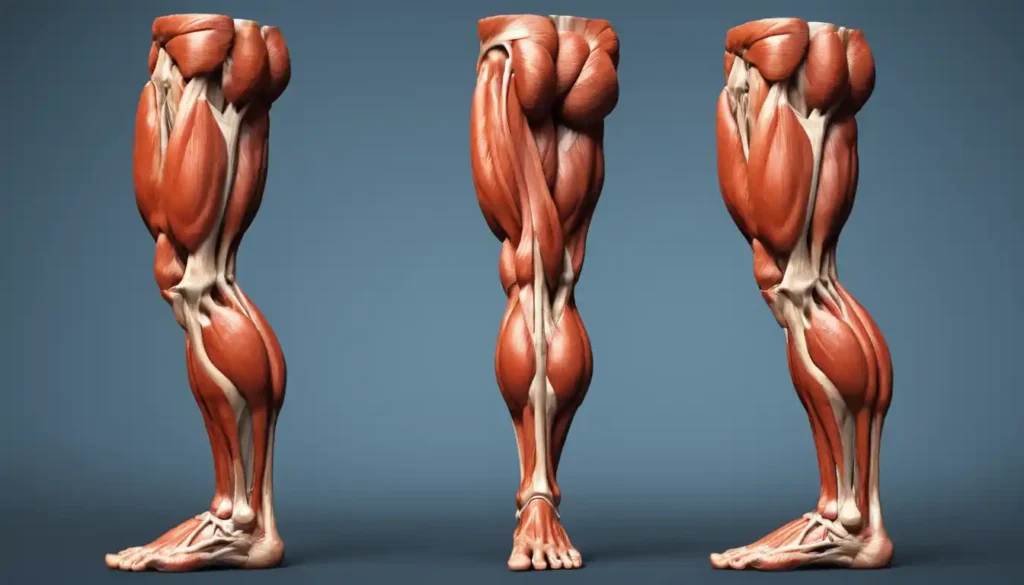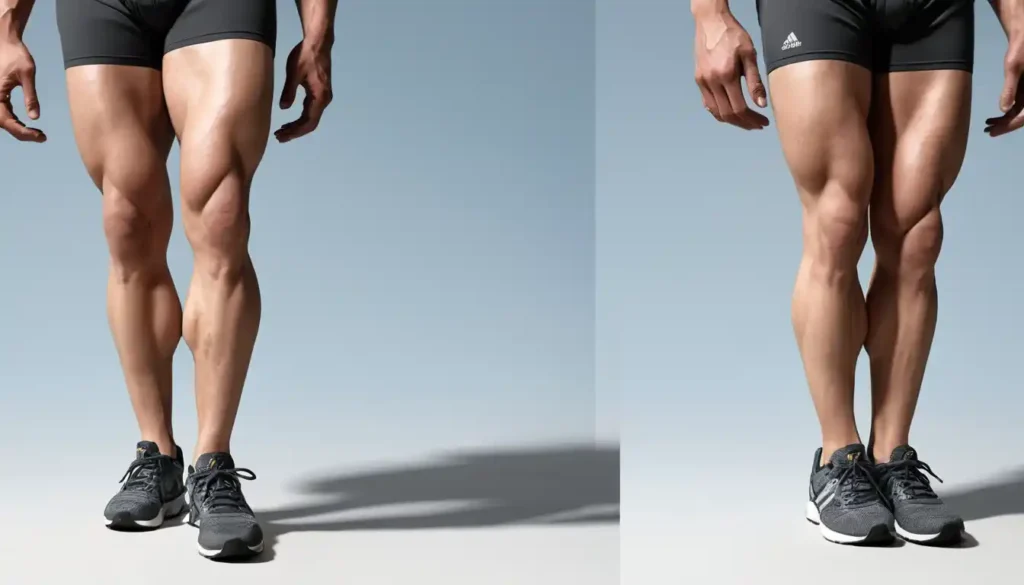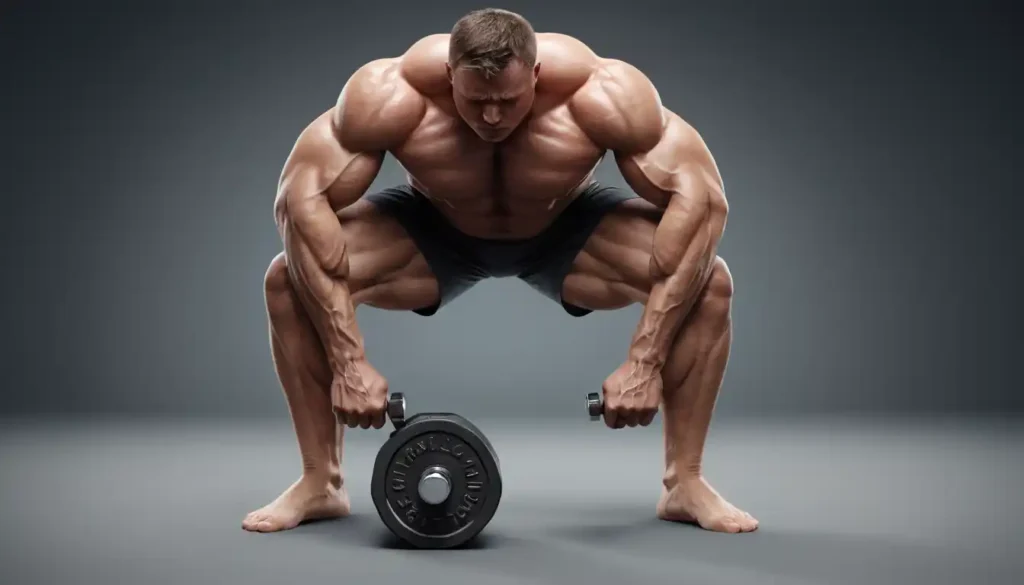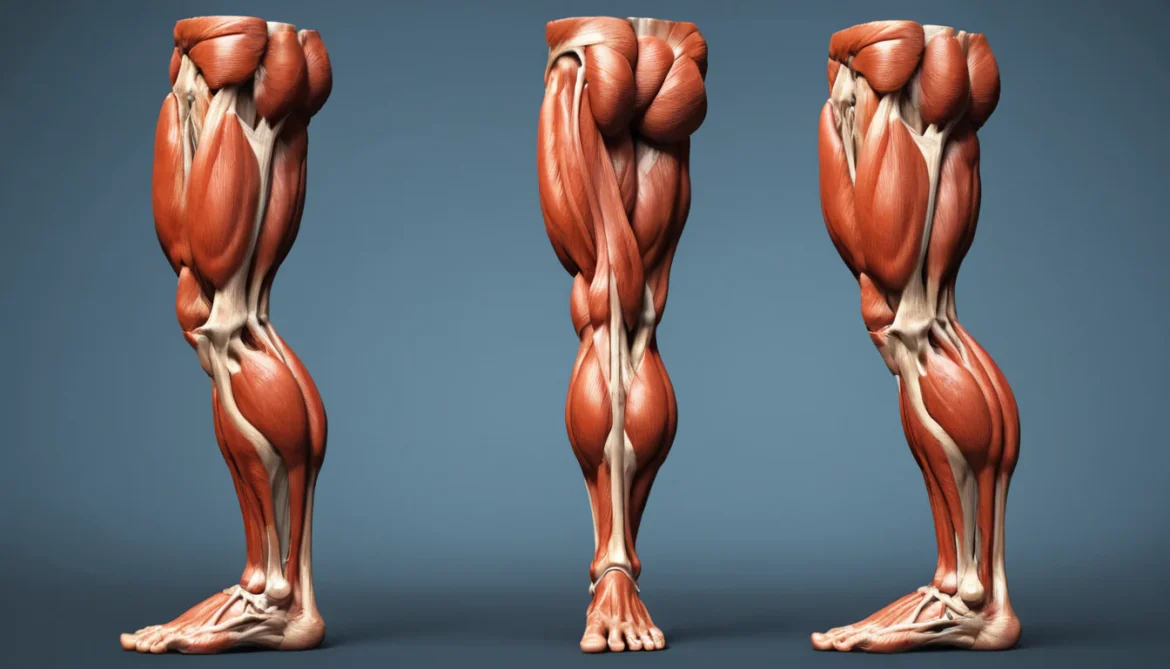Table of Contents
Many people experience a feeling of heaviness in their legs at some point in their lives. When your legs feel heavy, it can make simple activities like walking or standing feel tiring and uncomfortable.
Various factors can cause this sensation, and knowing what they are can help you find ways to feel better. In this guide, we will explore the causes of heavy legs, symptoms to look out for, and effective ways to relieve this discomfort.

What Does It Mean When Your Legs Feel Heavy?
When we say that our legs feel heavy, we often describe a sensation that makes it hard to lift our legs or move around easily.
This feeling can be compared to dragging around a heavy bag or wearing weights on your ankles. It’s not just about feeling tired; it can also come with other symptoms like swelling, aching, or cramping.
Common Causes of Heavy Legs
There are several reasons why your legs might feel heavy. Let’s take a closer look at some of the most common causes:
- Peripheral Artery Disease (PAD)
Peripheral artery disease is a condition where fatty deposits build up in the arteries that supply blood to your legs. When these arteries become narrow or blocked, blood flow decreases.
This can lead to pain, cramping, and a feeling of heaviness in your legs, especially during physical activities like walking or climbing stairs. Risk factors for PAD include:
- High cholesterol levels
- Smoking
- Diabetes
- High blood pressure
If you notice that your legs feel heavy after walking or exercising, it might be worth discussing this with your doctor.
- Overtraining Syndrome (OTS)
For those who exercise regularly, overtraining syndrome can be a common issue. This happens when you push your body too hard without allowing enough time for rest and recovery.
Athletes, particularly runners and cyclists, often report that their legs feel heavy when they are overtraining.
Signs of OTS include:
- Fatigue
- Decreased performance
- Mood changes
- Heavy legs
If you think you might be overtraining, consider taking a break or reducing the intensity of your workouts.
- Restless Legs Syndrome (RLS)
Restless legs syndrome is a condition characterized by uncomfortable sensations in the legs that often occur when you are sitting or lying down.
People with RLS may describe their legs as feeling heavy or “crawly.” These sensations usually improve with movement but can disrupt sleep and relaxation. Factors that may increase your risk for RLS include:
- Smoking or drinking alcohol
- Certain medications
- Pregnancy
- Nerve damage
If you find that your legs feel heavy at night and it affects your sleep, it’s important to talk to your healthcare provider.
- Venous Insufficiency
Venous insufficiency occurs when the veins in your legs have trouble sending blood back to your heart.
This condition can cause blood to pool in the veins, leading to swelling and a heavy feeling in the legs.
You might also notice varicose veins—bulging, twisted veins that can be painful and unsightly.
- Pregnancy
During pregnancy, many women experience heavy legs due to increased fluid retention and changes in blood flow.
The growing uterus puts pressure on the veins in the pelvis, which can lead to discomfort in the legs. This feeling is usually temporary and improves after giving birth.
- Obesity
Being overweight can put extra pressure on your veins and muscles, making your legs feel heavy.
Carrying excess weight can affect circulation and lead to feelings of fatigue in your lower limbs.
- Dehydration
Not drinking enough water can lead to dehydration, which may cause muscle cramps and make your legs feel heavy.
Staying hydrated is essential for maintaining good circulation and muscle function.

Symptoms of Heavy Legs
When your legs feel heavy, you might notice other symptoms as well. Common symptoms associated with heavy legs include:
- Aching or throbbing sensations
- Swelling in the feet or ankles
- Cramps or tightness in the muscles
- Numbness or tingling sensations
- Changes in skin color (such as redness or paleness)
If you experience any of these symptoms along with heavy legs, it’s important to pay attention to how often they occur.
How to Relieve Heavy Legs
If you’re dealing with heavy legs, there are several strategies you can try to find relief:
- Take Breaks from Sitting or Standing
If you sit or stand for long periods—like at work—make sure to take breaks regularly. Stand up and stretch every hour if possible. This helps improve circulation and reduces feelings of heaviness.
- Elevate Your Legs
Raising your legs above your heart can help reduce swelling and improve blood flow when your legs feel heavy. Try lying down with your legs elevated on pillows for 15–20 minutes each day.
- Wear Compression Stockings
Compression stockings are specially designed to support your veins and improve circulation in your legs.
They apply gentle pressure that helps blood flow back toward the heart, which can alleviate feelings of heaviness.
- Stay Active
Regular physical activity is essential for good circulation and overall health.
Activities like walking, swimming, or cycling can help keep blood flowing smoothly through your body and reduce feelings of heaviness in your legs.
- Massage Your Legs
Gentle massage can help stimulate blood flow and relieve tension in your muscles when they feel heavy. You might try using lotion or oil while massaging for added comfort.
- Maintain a Healthy Weight
If you’re overweight, losing weight can significantly reduce pressure on your veins and help alleviate symptoms of heavy legs.
A balanced diet combined with regular exercise is key to achieving this goal.
- Stay Hydrated
Drinking enough water is crucial for overall health and can prevent cramping that may contribute to the feeling of heaviness in the legs. Aim for at least eight glasses of water per day.

When to See a Doctor
If you often experience heavy legs or if the feeling worsens over time, it’s important to talk to a doctor about it. They can help determine the underlying cause of your symptoms and suggest appropriate treatments. You should seek medical advice if you notice any of the following:
- Persistent pain or swelling in your legs
- Skin changes (like discoloration or ulcers)
- Difficulty walking or standing
- Symptoms that interfere with daily activities
Conclusion
In summary, having heavy legs can be uncomfortable and frustrating, but understanding what causes this sensation is the first step toward finding relief.
Whether it’s due to peripheral artery disease, overtraining syndrome, venous insufficiency, or other factors, knowing how to manage these symptoms is essential for improving quality of life.
By taking proactive steps—like staying active, maintaining a healthy weight, elevating your legs when needed, wearing compression stockings, and staying hydrated—you can help reduce feelings of heaviness in your legs.
If you’re unsure about what’s causing your discomfort or how best to treat it effectively, don’t hesitate to consult with a healthcare professional for guidance tailored specifically for you. With these strategies in mind, you’ll be better equipped to tackle those days when your legs feel heavy so you can enjoy life more fully!
FAQ
Why do my legs feel heavy?
The sensation of heavy legs can be caused by various factors, including poor circulation, venous insufficiency, and conditions like peripheral artery disease (PAD). Other factors, such as prolonged sitting or standing, obesity, and even hormonal changes during pregnancy, can contribute to this feeling. It’s essential to identify the underlying cause to determine the best treatment.
What are some home remedies for heavy legs?
To relieve the feeling of heavy legs at home, you can try several remedies:
- Elevate your legs: Lying down with your legs raised can help improve blood flow.
- Stay active: Regular physical activity, such as walking or swimming, promotes circulation.
- Wear compression stockings: These can help support your veins and reduce swelling.
- Stay hydrated: Drinking enough water helps prevent dehydration-related cramps that can make your legs feel heavy.
- Yes, dehydration can lead to muscle cramps and fatigue, which may contribute to the sensation of heavy legs. Ensuring you drink enough fluids throughout the day can help maintain proper hydration and reduce this feeling.
When should I see a doctor about my heavy legs?
If your legs feel heavy frequently or if you experience additional symptoms like pain, swelling, or skin changes (such as discoloration), it’s important to consult a healthcare professional. They can evaluate your symptoms and perform necessary tests to determine if there’s an underlying condition that needs treatment.
Are there specific exercises that can help with heavy legs?
- Absolutely! Gentle exercises can significantly improve circulation and alleviate the feeling of heaviness in your legs. Some effective activities include:
- Walking: A simple yet effective way to promote blood flow.
- Swimming: The buoyancy of water helps relieve pressure on your legs.
- Cycling: This helps tone leg muscles and improve circulation without putting too much strain on them.
- Incorporating these exercises into your routine can help manage symptoms over time.
